Geetika Anand Gupta, Founder of MOPP Foods
When Geetika Anand Gupta set out to introduce her son to the authentic Indian street foods, parathas and pakodas, little did she know it would turn into a much bigger mission. Realizing that no organized delivery platform for the snacks existed in India, and the size of the business opportunity, Geetika decided leave her corporate career behind to set out on her own.
With a vision to create employment opportunities and uplift her employees through training and inclusion, Geetika started her own business, MOPP Foods. MOPP delivers parathas and pakodas that are made hygienically in a special way that keeps them crispy even after delivery. The company currently operates under two brands, Mad Over Parathas & Pakodas (MOPP) and Mealy, and Geetika hopes to expand across India and employ 5,000 people down the road.
Geetika is a member of Upaya and MIT D-Lab’s 2021 Scale-Ups Accelerator cohort. Her business was selected for the program because of her dedication to social impact and job creation in marginalized communities. As the 2021 program wraps up this week, we are pleased to share the conversation we had with Geetika about what inspired her to start her business and where she hopes to take it.
What inspired you to become an entrepreneur?
I'm an MBA gold medalist scholarship holder, and I had a brilliant corporate life before I became an entrepreneur. I joined as a trainee after my MBA, and I left my last position as a marketing director. I had a very comfortable life. Everything in life was really sorted, but something was still missing. I wanted to do more for society — for the people.
I thought that if I put the same passion, same energy, same enthusiasm into something of my own, then I can achieve more by creating more jobs, influencing more people's lives, upgrading and uplifting more people. This is when I decided that I should do something of my own.
How did you get the idea for MOPP Foods?
So, my son was born and brought up in Dubai. When we came back to India in 2016, I wanted him to try the authentic staple diet of India, which is parathas and pakodas. But to my surprise, they were only either available from cart vendors on the street for 40 rupees, or in fine dining restaurants serving liquor and parathas for 550 rupees. So, I could not find any organized player delivering hygienic parathas and pakodas in the online delivery platform.
I thought this was a fantastic opportunity. The market size is so big. From a five-year-old to 95-year-old, whether male or female, any income bracket, they all eat parathas and pakodas! So, we did some research in understanding why this particular category is not tapped. And we realized the pain points of the industry and the perception of the people. In fact, it's true that parathas and pakodas are considered to be soggy, they become oily, and they are not a delivery friendly product. They lose their crispiness on delivery.
So, we invested time, money, and energy to study the market size, opportunity, product pain points, solutions, etc. We applied a lot of physics and chemistry to understand the physical properties of batters and the different permutations and combinations that can make these products not soggy and not oily. And after studying it for nine months (it's a joke within our company that it took nine months to give birth to this baby) we found the solution of making the perfect delivery-friendly product which is not oily, not soggy, and remains crispy on delivery. This is how we reinvented the product and uplifted the product from the street to an organized, hygienic segment, delivering crispy pakodas to your doorstep. Here MOPP was born to lead.
What is your vision for the company?
We have a vision of inclusion for every employee. When I started MOPP Foods Private Limited, I saw that there are people who have the brain but do not have the education or the right opportunity, and thus, they can't get a job. There are the sons of the garbage picker or the daughters of a maid who are forced to become a maid or a garbage picker only. My thought is to change this custom.
In our company, we have a vision to uplift each and every person who is working with us, and we try to employ people who, if I would not have employed, would not know what they would have done. We create a career path for everyone from the housekeeping employee till the head chef too.
Can you share a few examples of the changes you have seen so far in your staff?
I have a person who works with us, his name is Surinder Ji. He is very old in age, and he, finally at this age, is able to make his own house. Those who are married, we motivate them to create literacy for their kids. So, they send their kids to private schools, and their kids can have education. There are people who could buy their first refrigerator, first microwave, etc.
I would call it a ripple effect. What I am trying to do is not only affect one person's life — it affects the whole family of that person. You know when I say buying a refrigerator or building their house, or wearing nice, clean clothes, I mean it improves their standard of living and their socio-economic status also improves. It not only affects them, but it affects others also, and motivates others also. It brings change in the whole community, and brings a positive impact on the overall ecosystem.
What would you like your overall contribution to India to be?
We want to improve the economy of the country, literacy rate of the country, socioeconomic status of the people living in this country. If we create jobs, then they are able to go and buy something, then the person who's selling to that person will buy something else. So, the overall economy will be affected. Even if I can positively impact a tiny percentage, it will definitely bring a positive change in this big ecosystem. So, this is our bigger picture.
How would you describe your entrepreneurial journey so far?
I really believe in one statement: strive for perfection, but settle for excellence. My passion is to do everything perfectly — whether it is my relationship with my child or my husband, whether it’s my job, my business, my team, whether it's operations or strategy, anything and everything — my passion is to do it perfectly. I apply the principle of balance in life and strive for excellence in everything I pursue.
How were your jobholders impacted by the Covid pandemic and lockdowns?
During the peak lockdown, people were stuck on the road, people lost their jobs, trains had stopped, flights had stopped and there were people stranded on the road. I told myself I cannot not let this happen to my team or their families.
We got enrolled as an essential service because food is an essential commodity, and we immediately got all our staff in like a bio-bubble in the rooms next to our outlet. We also asked our employees’ families to stay with us. We took care of their food and shelter, and we did not deduct a single rupee of their salary irrespective of whether we were selling or not. I literally paid the staff salaries from my pocket. It was really tough financially, but everyone remained safe within the bubble. Hence, we managed to keep our outlets open every single day while other brands shut down. While the sales went down, we kept growing much faster than anybody else because people started developing faith in us. Our brand value and customer faith increased.
How has the pandemic made you pivot your business?
Before the pandemic,we were doing very well, and the sales were increasing. Our product got great traction among corporates. And then came COVID and all the sales went suddenly down.
We were so scared when corporates shut down, as a large percentage of our orders were from the corporates. But instead we discovered a new target audience. So yes, we went through a very tough time as sales dipped. I was very scared, but then we replanned, restrategised, and added another brand (Mealy) to our portfolio. The sales started picking up again. In fact, now we have more than tripled our sales in the lockdown period.
During peak lockdown many people did not even have water to drink. And we started doing CSR for the people who were stranded on the road. So, we've created multiple channels of distributing food to the needy. We not only helped our team and employees and their families, but also went beyond that. We created a support system, collaborated with government bodies and NGOs and supported everyone. This is where we added our SDG of zero hunger goal.
Is there any one big insight that you've learned about the F&B sector?
I would say that before becoming a manager, it is very important to understand the work on the ground yourself. I work in the kitchen, I have done cleaning, I have done packaging, managed billing software, and executed many day-to-day operations. Before you become a manager, you have to become an employee first. I think my biggest takeaway is the learning I have gained in all departments in my journey so far.
What advice would you give to other entrepreneurs?
The entrepreneurial journey is like being on a bicycle. You have to keep cycling and keep going to keep the balance and reach the pinnacle of success. Perseverance is a very important word as well. People who do not accept failure, often win eventually!
Have you faced any specific challenges being a woman entrepreneur?
One challenge is that, as a woman leading a team, sometimes I meet people who do not like to be told what to do by a woman. Some people underestimate the capabilities of women. Since, as a person, I have a strong personality, and because of my passion, I have somehow been able to navigate it smoothly. Plus, the support of the family — especially my husband and my son, who are my strong pillars — ensures that I never fail.
I get a sense of achievement when I have been able to change the mindset of many people who used to think women can’t, and now they feel that women can. This sense of accomplishment is phenomenal when you change the opinion of a man and increase the respect of that person towards women.
Where would you like to see MOPP Foods in the next five to seven years?
I want to create 5,000 employment opportunities over the next five to seven years. I wish that I can take the company beyond borders also, and launch frozen versions of parathas and pakodas in the retail market. I want to have 250 kitchens across India and have a business valuation of 1500 crores in the next five to seven years.


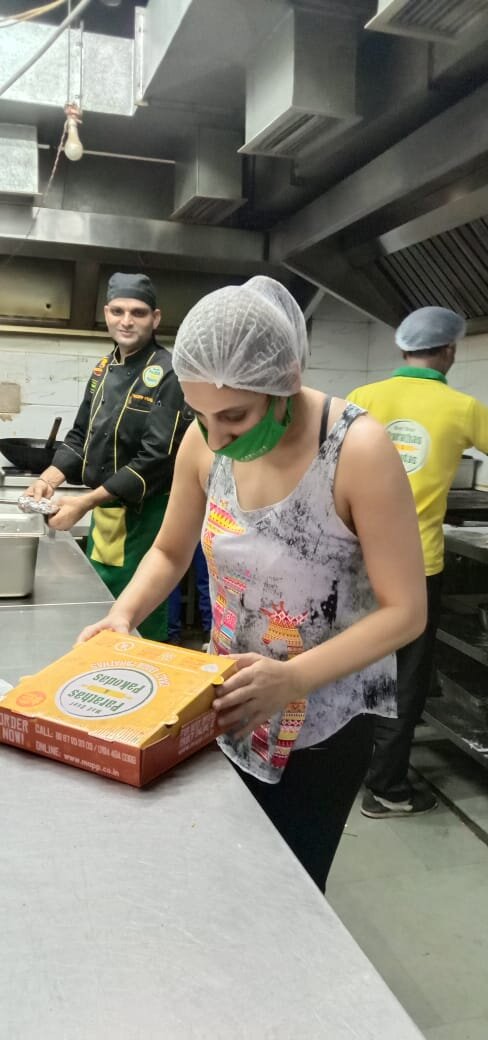
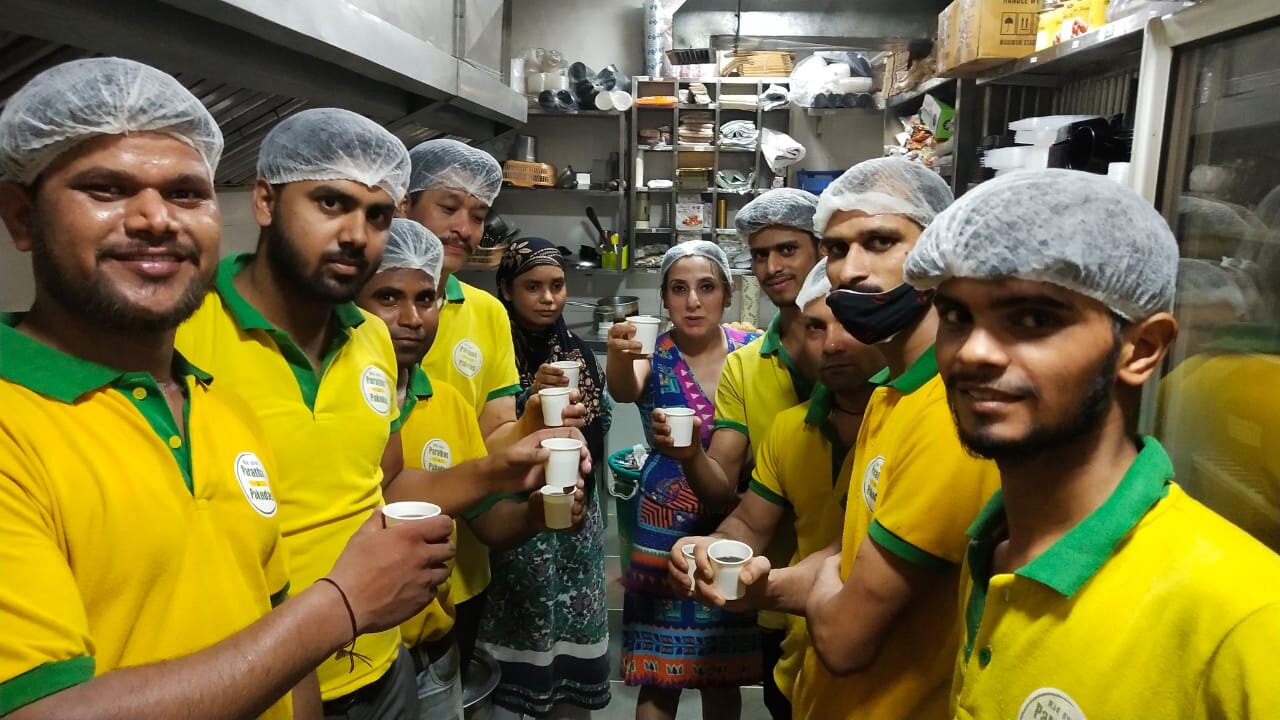
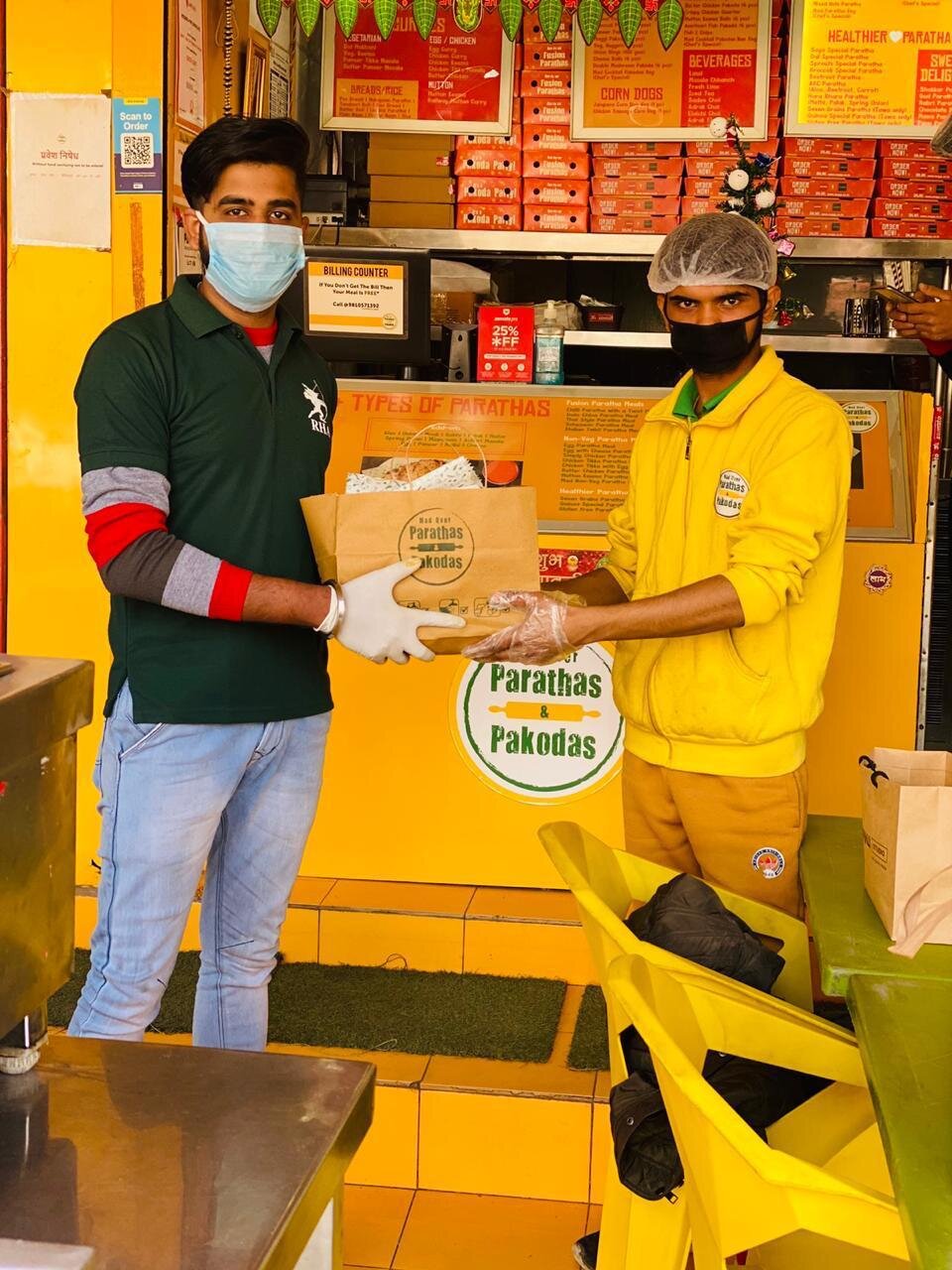
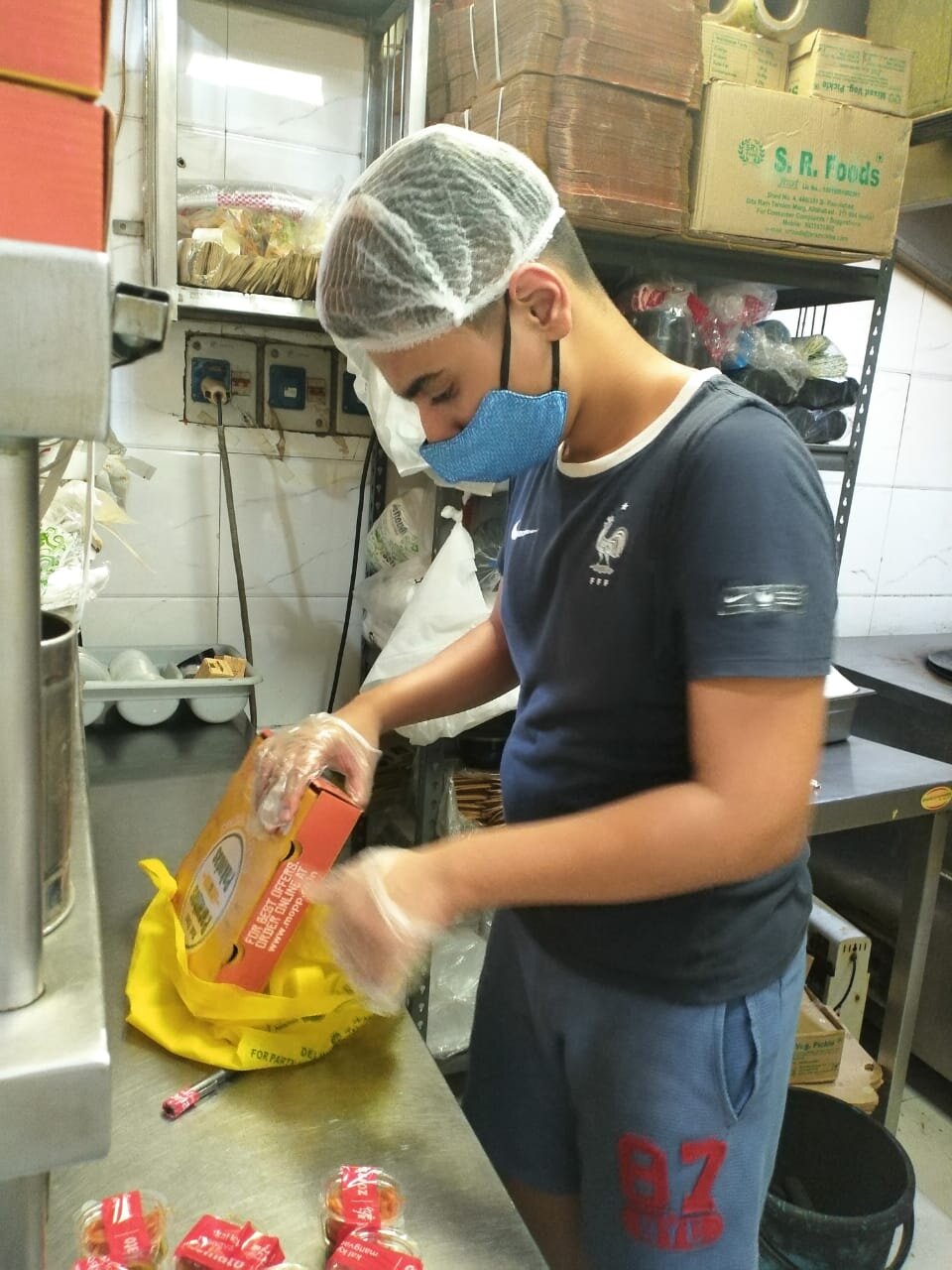
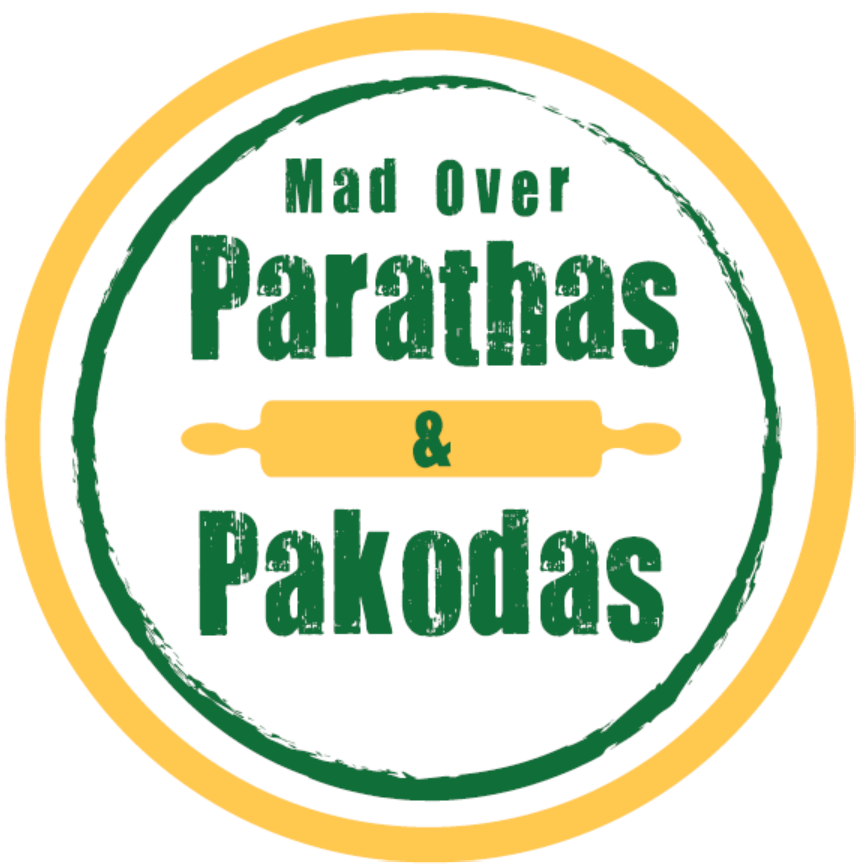











The Tribal Hermit is a social impact venture that works closely with 130+ Dhokra craft artisans from Kondagaon, Bastar, and Raigarh districts of Chhattisgarh to design, create, and sell their products.